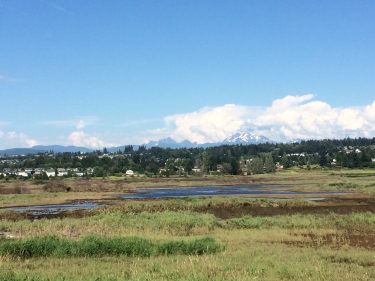
In a growing region, protecting Puget Sound is about more than recovering certain species of threatened and endangered animals with marine protected areas. It’s also about protecting the livelihoods and diverse cultures of the people who live there and balancing their needs with the needs of the natural world.
A team of University of Washington researchers and their collaborators tackled this quandary in a study spanning years and miles, across Puget Sound’s rural towns and urban centers. Through surveys and interviews with residents, tribal members, boaters, and state and federal agency contacts, they found that policies are shifting toward restoration projects that include input from more groups and offer a range of benefits to Puget Sound, including flood control, salmon recovery, recreation and habitat protection.
They believe this study, published in June in the journal Ocean and Coastal Management, is the first to document what has been a five- to 10-year policy shift in Puget Sound. Their study provides insights on how future restoration policies can meet the needs of various constituencies in the region.
Read more at UW Today »
